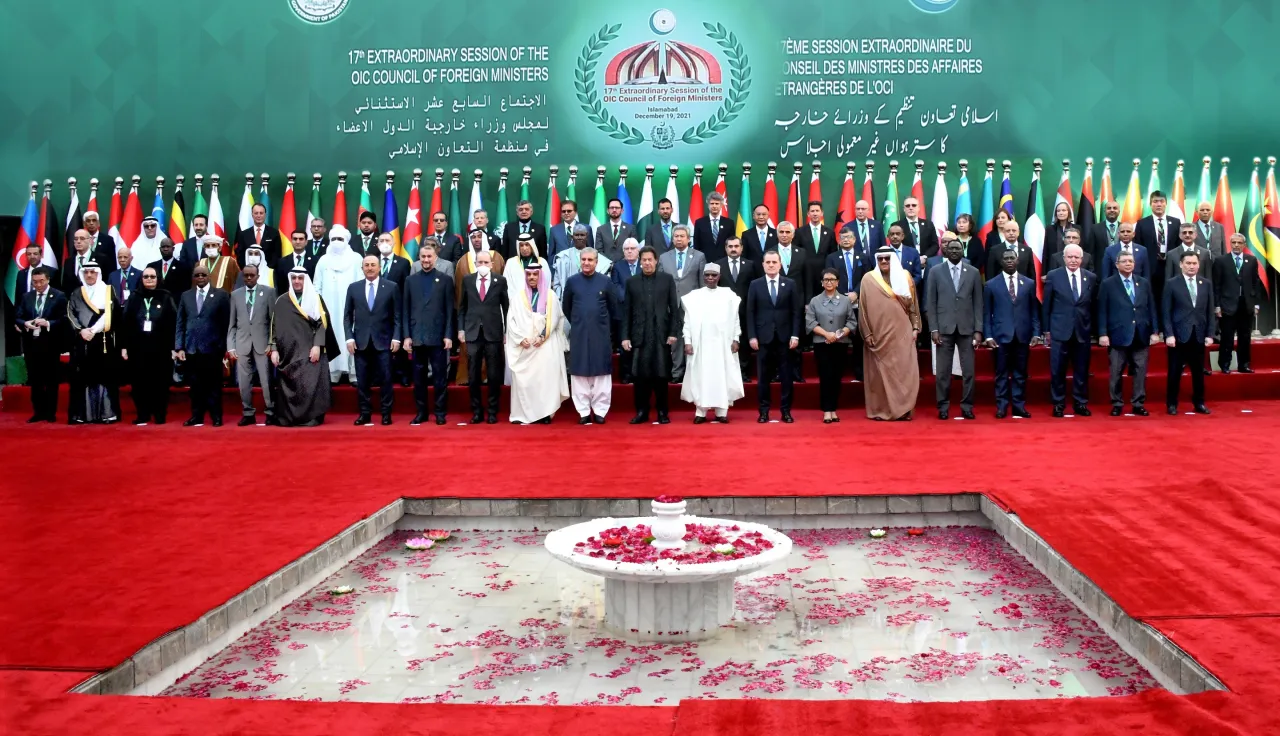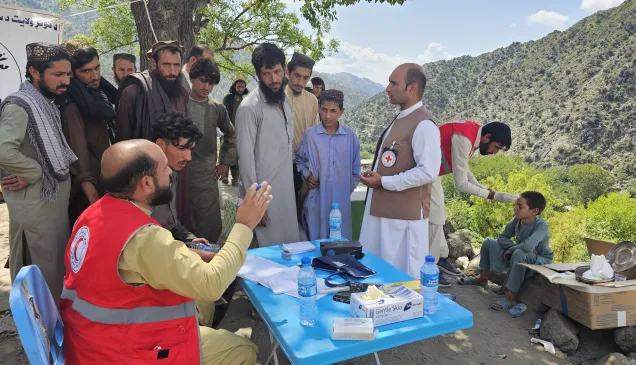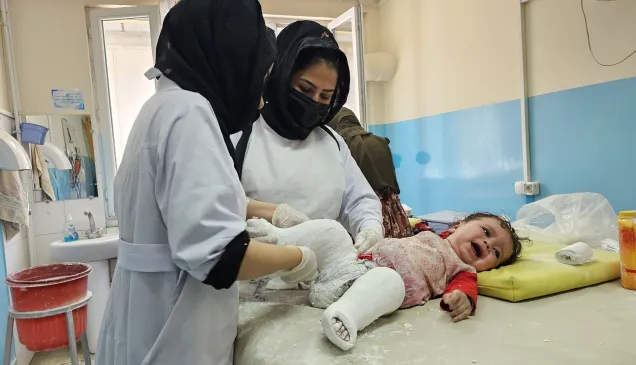Robert Mardini: “The wellbeing of Afghan people should lie above politics”

ICRC’s director-general Robert Mardini made three calls before the Organization of Islamic Cooperation to prevent further suffering in Afghanistan. First, safeguard humanitarian action in the country so that lives can be saved. Second, take steps towards ensuring greater liquidity within the Afghan economy. Third, protect and support displaced Afghans wherever they are.
Statement by the Director-General of the International Committee of the Red Cross during the 17th Extraordinary Session of the Organization of Islamic Cooperation Council of Foreign Ministers – 19 December 2021.
Excellencies,
I thank the governments of The Islamic Republic of Pakistan and the Kingdom of Saudi Arabia for convening this Extraordinary Session.
In Afghanistan, millions of women, men, and children are facing tremendous hardship and suffering. Prices of food, fuel, and medicine have increased, disrupting access to essential services.
Aid is practically frozen, salaries are not being paid and banks are struggling to function. The constraints and the "chilling effect" of sanctions runs deep and wide and it affects many actors with significant consequences on the ground.
This comes against the backdrop of decades of conflict, months of drought, and a global pandemic. As winter sets in, nearly half of the Afghan population is facing acute hunger. Across borders, many Afghan refugees are also in need of assistance and protection.
The International Committee of the Red Cross has been supporting the people of Afghanistan for more than 30 years. Our main message today is the same as it has always been: the wellbeing of Afghan people should lie above politics.
We have been working to rapidly scale up our operations across the country. We currently have over 1,800 staff providing diverse humanitarian assistance, together with the Afghan Red Crescent Society and other Movement partners. This includes support to communities struggling to meet their basic needs, and support to essential services such as water, sanitation, and healthcare.
Last month, the ICRC started a large project supporting 23 regional and provincial hospitals, complementing the efforts of other organizations. Importantly, we are working closely with our long-standing partner, the Afghan Ministry of Health. Partnerships of this kind are crucial to achieve sustainable results.
This leads me to make three calls to all of you today:
First, safeguard humanitarian action so that lives can be saved. This means providing funds for much-needed assistance, but also ensuring those funds can actuallybe used in an environment constrained by sanctions and counter-terrorism legislation. Concretely, we need standing, well-framed humanitarian exemptions so that we can continue carrying out the mission that states have entrusted us with.
Second, take steps towards ensuring greater liquidity within the Afghan economy. This is key to maintain the functioning of critical public services, to stem humanitarian needs, and to prevent the rapid loss of development gains made in past decades. A first significant step is the payment of salaries for half a million public sector servants.
Third, protect and support displaced Afghans wherever they are. The generosity of Pakistan and other countries in the region is a critical lifeline for hundreds of thousands of Afghan refugees. They need dignified living conditions and their safety must be ensured. In this regard, I remind states of the importance of the principle of non-refoulment and call on you to maintain avenues for asylum seekers to access international protection.
The ICRC stands ready to work with all stakeholders, within and outside of Afghanistan, to ensure that Afghan people have the protection and assistance they need, in all circumstances.
Thank you.



